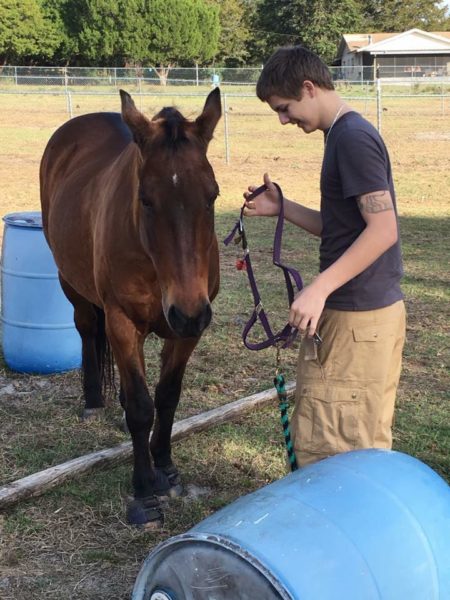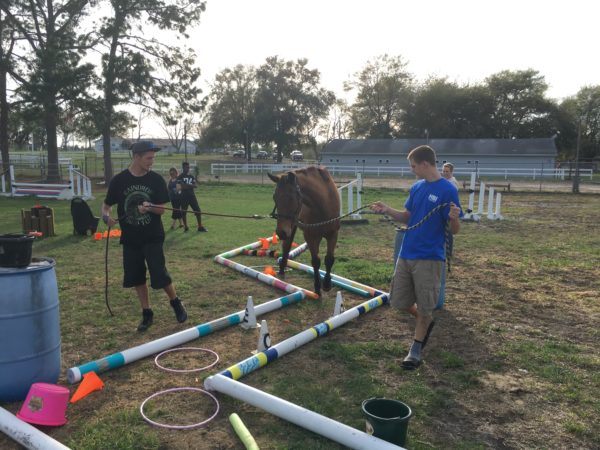Youth and Horses- Why it Works
By: Lindsay Brim March 7, 2017
Our team has experience working with youth who are involved in the Department of Juvenile Justice system as well as youth who are “at risk” of offending and becoming involved in the DJJ. We also work with youth who are having trouble in school or struggling with behavioral outbursts at home. No matter the background of the client, when they walk through our gates, they are stepping into an unfamiliar world that is peaceful, nurturing, judgement free, but can also be scary. This allows for our clients to grow in a way that can only happen when they are outside of their comfort zone.
In our experience, here are a few reasons why this work is powerful for this population:
Develop Self Control
-The sheer size of the horses often cause clients to take a respectful step back, even those who have behavioral outbursts will often contain them in the presence of a horse.
Improve Problem Solving and Self Confidence
-When youth come to our farm, they are presented with unpredictable, unscripted scenarios in which they have no previous experience ( most clients have no horse experience). The skills that clients use to accomplish tasks are actually being practiced and adapted in the moment. Mastering problem solving skills in a setting like ours helps to strengthen a clients’ self-confidence as they complete tasks initially thought to be beyond their ability. (Example- catching and placing the halter on a horse with minimal instructions, getting a horse to go over an obstacle without touching them in any way).
Receive Immediate Feedback

-One of the most unique aspects of Equine Assisted work is that horses offer immediate feedback and reactions to behaviors presented to them. Clients who impulsively jump into a situation without thinking of possible consequences will likely see some immediate effect displayed by the horse. We see this commonly in youth but horses teach youth to take a step back, think and problem solve before jumping into a situation. How important is that lesson for everyday life?
Build Non-Verbal Communication Skills
-Youth learn quickly to say what they think their parent, therapist or probation officer wants them to say. In our work, we are not focused on the verbal communication, we are focused on the non-verbal. This is so powerful because it is really hard to “fake” non-verbal communication!
Learn to Utilize New Resources
-We also frequently discuss utilizing resources for help during our sessions. With almost all of the activities, we have resources available for the client to use. Some clients utilize resources right away, others never ask for help or utilize any other tools but themselves. This gives us great information that we can discuss with them.
Develop Emotional Bonds
-We also have to mention the bond that develops between the horses and clients. The horses have an incredible way of showing attention and love to those who need it, exactly when they need it. We have seen our horses give clients “horse hugs” when they are sharing an experience that is hard for them to talk about.
I am a big fan of the book, “The Tipping Point” by Malcom Gladwell. He discusses the idea of behaviors having “stickiness”. Our work has the stickiness factor because our clients are often outside of their comfort zone, having an experience and self- discovering as compared to just merely listening and talking. They remember what they did, how they felt and the outcome of the situation which makes the lesson “stick” and leads to change.

We are proud to serve at risk youth at our farm. We provide both Equine Assisted Learning opportunities which focus on life skills as well as Equine Assisted Psychotherapy (counseling) with our Licensed Mental Health Professionals. If you know of a youth who would benefit from our services, please contact us!

Comments